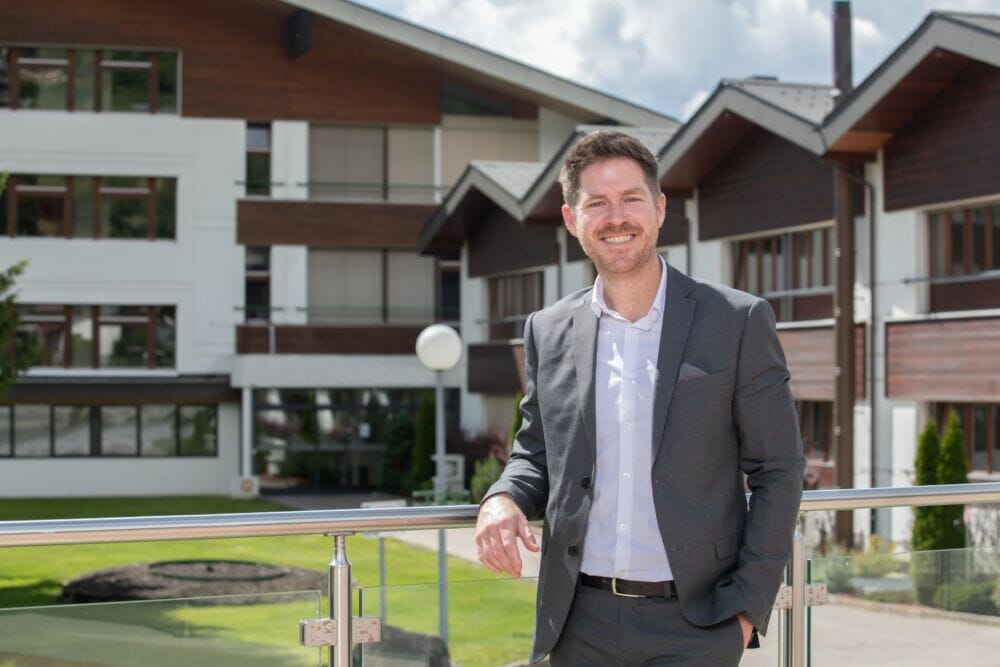
Pablo Garcia
Director of Spark Innovation Sphere, Crans-Montana
Les Roches Global Hospitality Education
Sipping a cocktail mixed by a robot is no longer pure science fiction, and more new technological advances lie just around the corner.
As the Internet of Things (IoT) spreads its wings, we are moving into a new era – the age of human-machine collaboration. Amid the current wave of innovation, let us take a closer look at the trends tipped to be the most promising for the hospitality sector.
The hotel and catering sector has always been at the forefront of innovation. In kitchen assistance, most catering businesses were quick to adopt multi-function pressure cookers and steam ovens. And automatic ovens are now available that can adapt the cooking process to the food and texture they are handling.
With 3D printing and high-pressure waterjet cutting, the sky’s the limit for creative thinking. Smart traceability and temperature control solutions guaranteeing the quality of cooked products when served to guests are among the eagerly awaited advances in contract catering. Such a new tech tool would allow for better control of the environmental impact of food waste, by enabling kitchen surplus to be more easily certified as safe for human consumption.
Repetitive tasks are where robotic assistance really excels, however. At Spark, which offers specialised incubation services at Les Roches Crans-Montana and Marbella campuses and also invites students, alumni and industry partners to develop and test new hospitality solutions in living laboratories on campus, we are working with FANUC, the world leader in industrial automation, on making robots more collaborative for the hotel and catering sector.
Also, our teams participate in the research projects of another company in the field of foodservice stands, the Swiss group Smyze, which has developed a new robot-based coffee and beverage bar. Customers place their orders via a touchscreen or on a mobile, and the robot barista is even able to mix mocktails with aplomb. The machine’s algorithm gives out tips, taking its knowledge of drinkers’ tastes into account.
Linking systems up with staff represents a major source of innovation, with the goal being to stay one step ahead of each customer’s needs. Possible applications of this approach include a hotel reception desk being able to greet a new guest by name rather than having to ask for it, service staff being notified via their mobile phone that a VIP guest is about to arrive, and a top restaurant gaining advance knowledge not just of their guests’ potential food allergies or intolerances but also of what kind of meal they would enjoy based on past preferences.
PRE:MIND is a Spark partner that is developing an instant recognition system that incorporates an emotional dimension. Staff are informed of the person they are dealing with via a coin-sized tag connected to a mobile phone screen. The solution is based on data that the customer agrees to provide in return for a unique experience. Just as we have an interest in joining loyalty programmes, the benefits that we gain from sharing our data are substantial. It is clear that artificial intelligence and IoT do not pose any issues per se; it is how data is collected and protected that may be problematic.
Lastly, another promising line of research is developing a robot’s or an app’s soft skills. At Spark, for instance, we are investigating how to detect human emotions and thus measure customer satisfaction or predict their personality. In hospitality, as well as in many other areas, imagination is the only limit on the future potential. As Henry Ford famously said about motor industry innovation,“If I had asked people what they wanted, they would have said faster horses”.
